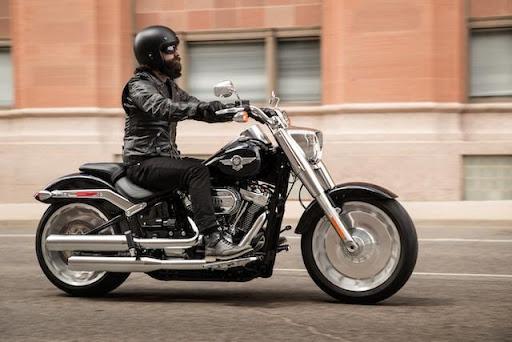The excitement new bikers feel can range from exhilarating to trepidation. They’ve passed the written and road test to ride legally, but before they get thousands of miles under their belts to build up confidence and learn some street smarts, those new to two wheels, unfortunately, are at a greater risk of accidents. Safe to say, they should keep their eyes open and the number of a New Haven Motorcycle accident attorney on their contact list. They may never know when it will come in handy to win back their full compensation after a collision with a careless driver.
Table of Contents
Motorcycle Accident Prevention Suggestions for New Riders
Experience is the best teacher; however, when it comes to motorcycle safety, having the knowledge of what to do and what not to do can be equally life-saving. Those early days on two wheels can be a roller coaster of confidence and fear. Having the knowledge of the types of situations that could pose a danger can help to keep a novice biker from getting first-hand knowledge of what road rash and broken bones are.
Wear Appropriate Riding Gear
It’s important to mention that you should never hit the road without wearing proper protective gear. Although Connecticut riders over the age of 18 aren’t legally required to wear a motorcycle helmet, it’s strongly suggested that you do. A leather riding jacket and gloves are just as important.
Be Seen
Vehicles that hit motorcycles have the same excuse. Many bikers have heard, “I didn’t see you,” as the reason for the collision. A motorcycle has a much smaller profile than a car, so bikers should do everything possible to ensure that they’re seen. Ride with your headlight and running lights on, even during the day. Consider placing reflective material on your riding jacket, helmet, and saddle bags to ensure that drivers know you’re there.
Be Aware of Your Limitations
It’ll take hundreds of miles before you’ve encountered all the typical hazards that motorcycle riders can face. In your early days of riding, it’s important to know what your limitations are. It’s not advisable to start off taking all-day-long trips trying to add clicks to your odometer. Rider fatigue can lead to accidents. Foul weather is also to be avoided, and not just for novice riders. Wet roads won’t provide the traction that dry ones do.
Watch Your Speed
Always obey all posted speed limits. While cracking the throttle and whipping down the highway may be exhilarating, at higher speeds, you’ll need much more time and distance to slow down safely to avoid an obstacle or other vehicles. The same goes for city riding and country roads. Slow down and enjoy the ride.
Enroll in a Motorcycle Safety Course
Bikers, new and experienced, can always benefit by enrolling in a motorcycle safety course. New riders can learn more about accident prevention tactics, and more experienced ones can benefit from a refresher course. Some motorcycle insurance companies will offer discounts for riders who’ve successfully passed a safety course. It’s a win-win opportunity.
Always Be Aware of What’s Behind You
New riders become quickly aware that many cars won’t give them the necessary space. Many cars are oblivious to the fact that you’re on two wheels and don’t have a safety cage wrapped around you like a passenger vehicle does. Tailgating of motorcycles is common, and if you have to slow down quickly, there’s a real possibility of being rear-ended. Glancing in your rearview mirrors frequently is of utmost importance.
When stopping at intersections for stop signs or traffic lights, always be aware of vehicles approaching from behind that may not see you. Keep your motorcycle in first gear in case you have to quickly avoid being hit from behind.
Ride Defensively
Savvy bikers keep their eyes on the road, scanning for possible hazards. Animals darting out on the road, vehicles slowing down abruptly, potholes, and distracted drivers are just a few of the things a motorcycle rider could encounter. When riding around other vehicles, always have an exit plan if you need to move quickly to avoid being hit.
Don’t Drink and Ride
It should go without saying, but no one should operate any type of motor vehicle if they’ve had a few alcoholic beverages. Sure, that mid-ride break with your biker buddies to kick down a few cold ones may seem like a great idea, but alcohol can impair judgment, lessen reaction times, and interfere with balance. If your biker instinct is “born to be wild,” do it sober.
New Motorcycle Rider Accident Prevention Tips: Final Thoughts
While riding a motorcycle is a great hobby or a mode of transport for your daily commute to work, new riders are at a greater risk of being involved in an accident than those with a decade of riding under their belts. Rider error is a common cause for new riders to end up with miles of road rash and broken bones. Accident prevention education is key to keeping the shiny side up and the greasy side down.
If you’ve been in a motorcycle accident and have no idea how to receive compensation, contact an experienced personal injury attorney who has experience with bikers. They’ll get you pointed in the right direction and guide you from lawsuit to compensation.







